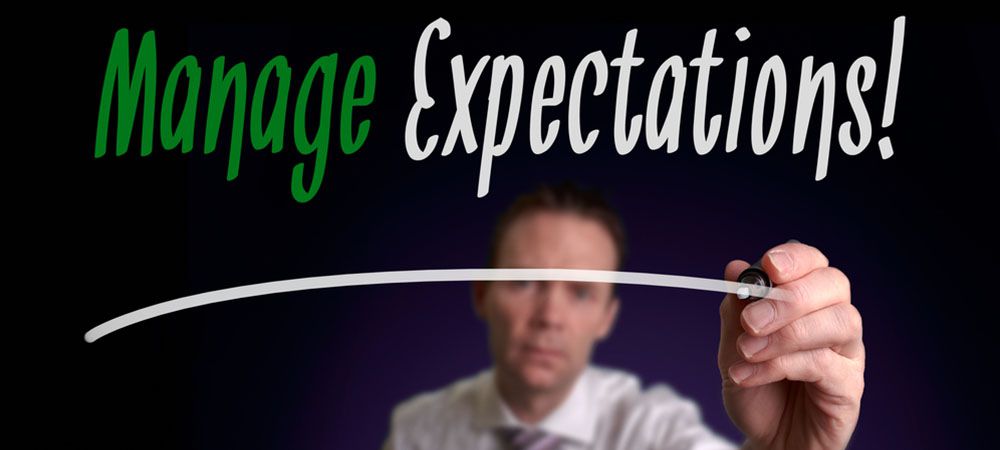Living and watching a loved one rot away in addiction is hellish. Help is needed – everyone knows that but the person with substance abuse disorder. These individuals are usually in denial of their problem and refuse to seek treatment. They also often do not see or understand the adverse effects on their health and behavior and how it affects the rest of the family. In many cases, the only hope rests on successfully staging an intervention to stop the addictive habits.
Addiction is a growing concern. In 2012, the Canadian Alcohol and Drug Use Monitoring Survey showed 21.6% of the population (roughly 8 million people) meets the substance abuse criteria. By far, the most abused substance is alcohol, followed by cannabis, hallucinogens, and stimulants.
Talking to a person struggling with addiction is necessary – and can be impossibly challenging. In this case, you need a more focused approach in intervention, which may involve professional help.
What Is An Intervention?

A person struggling with addiction – as alluded to, is not likely to seek help. You can work around that denial by engaging the services of a licensed drug or alcohol counselor. Under the guidance of an intervention specialist, a plan could be carefully formed to help the loved one understand the consequences of substance abuse in a non-threatening, positive way.
During an intervention, you and the interventionist explain the negative impact of destructive behaviors on family and friends in a manner that is not degrading. A viable detox and comprehensive rehabilitation program are presented, including the processes or steps involved and goals. The plan also includes actions to take in case the offer to help is rejected.
An intervention is not limited to family members. It may also include other people, such as friends, who care for the person suffering from addiction. Every person involved should make a conscious effort to stay on topic. Spontaneity should be avoided, as this may result in blaming and accusations. Hurtful words, for example, can lead to refusal of treatment when blurted out.
When Should You Intervene for a Loved One?
Counseling a loved one addicted to drugs or alcohol is not an easy thing to do. One reason for that is you may not know what to say. It also does not help when the addicted person denies or refuses to acknowledge the problem. Without help, the dependency can only get worse. Once you see these signs, then you know it is time for an intervention.
Psychological Symptoms
Unable to stop. Drug and alcohol dependency eliminates any form of self-control and discipline. The cravings are irresistible, resulting in the continued use of the addictive substance.
Ignoring health. Repeated use despite health problems. A smoker, for example, will keep smoking even after developing lung disease.
Handling problems. For many people struggling with an addicting substance, it becomes a means to cope with stress and problems. Instead of facing an issue head-on, it becomes a refuge – a safe place.
Obsessed with securing a stash. Instead of spending time with family and friends or staying productive, an addicted individual spends more time and energy trying to find ways to obtain more drugs or alcohol.
Taking risks. The craving for addicting substances may be too intense, leading to risky and reckless behavior that includes criminal activities to obtain money to buy more drugs or alcohol.
Physical Symptoms
Withdrawal symptoms. When the substance level drops due to not being able to drink or use, addicted people can experience constipation, diarrhea, sweating, seizure, or trembling. The cravings can also lead to uncharacteristic behaviors, with some resorting to violence.
Eating habits. Changes in appetite might occur. For example, cannabis use can cause munchies (eating more). On the other hand, drugs like cocaine reduce the desire to eat.
Contracting a disease. Frequent smokers may develop respiratory problems or lung cancer. Excessive alcohol drinking damages the liver, while injecting drugs could damage the veins and arteries.
Disrupted sleep patterns. Insomnia, for example, can be caused by withdrawal. Drugs such as speed and ecstasy can make a person go sleepless for several nights.
Deteriorating physical appearance. An addicted person may neglect personal hygiene, appearing disheveled, tired, and haggard.
Increasing tolerance. Once the body develops a tolerance to a substance, consuming more to attain the desired effects might result in an overdose.
Related article: Addiction Is a Lot Like Heart Disease, So Why Are We Not Approaching It The Same Way?
Social Symptoms
Sacrificing activities. Giving up on activities they used to love is indicative of a dependency problem. Refraining from going out with friends, for example, if there are no drugs or alcohol.
Secrecy. Addicted people are more likely to consume drugs in solitude. They appear to be withdrawn and may stop meeting friends or joining social activities.
Denial. Even though some addicted people may admit to using drugs or drinking alcohol, they do not see themselves as having an addiction problem. Usually, they think – with conviction – they can stop anytime.
Excessive consumption. Some substances – opiates and alcohol – might be consumed in excess. Even if they experienced the severe effects of overdosing, that would not stop them from future substance abuse.
Hidden stashes. Addicted people are likely to hide their choice of substance and drug paraphernalia in different parts of the house, where they could not be discovered.
Financial issues. Because of the need to ensure a steady supply, some addicted people may divert funds, sacrificing household necessities. It is a costly habit that could lead to financial difficulties.
Legal issues. Aside from committing a crime – steal money to buy alcohol or drugs – some people who are too intoxicated and suffering from impaired judgment may cause a scandal or resort to violence.
How Does Intervention Work?
The processes involved in an intervention begins with getting guidance, planning, and conversing with the addicted loved one in need of help. Generally, these steps are:
1. Get Help and Organize the Intervention Team
There is no shame in seeking help. A social worker or doctor might be able to provide guidance. As an option, you can also contact detox and rehab facilities as they have the expertise and experience to help people suffering from addiction recover. While your loved one needs help, you also need the support of professionals, other family members, and close friends. Together, you form the core of the intervention team.
2. Make a Plan
An intervention is a highly emotional situation. The highly-charged atmosphere is a powder keg waiting to explode. Because of the potential for betrayal, resentment, and anger, you and the rest of the intervention team should set aside time to make a comprehensive plan of action.
Your strategy should include when and where to talk to your loved one, how it will work, and every person’s role. For example, friends can be tasked to keep the discussion focused on the problem rather than emotional responses. In other words, they should diffuse tense situations, letting you and other family members continue to provide assurances of your love and support throughout the recovery process.
In the case of a successful intervention, each person should be willing to provide support in one way or the other. During detox, rehabilitation, recovery, therapy, and support group meetings, everyone could offer or take turns accompanying.
3. Gather Information
You and the rest of the team members should try to find out the extent of the problem. Find out what treatment options there are and make an initial arrangement for enrollment. Dig deeper too to make sure that the detox and rehabilitation program is suitable for your loved one’s personality. Once you find a treatment facility, they can provide you with more information.
4. Make Impact Statements or Notes
Every person in the intervention team has a personal relationship with the person suffering from addiction and has experienced negative impacts. And that means everyone has something to say, and this should be written down.
An impact statement is personal and details how a particular behavior has caused harm or hurt. Putting these in writing helps your loved one understand that personal struggles also affects other people. These statements should be emotionally honest and full of love and assurances – no blaming or personal attacks.
5. Set a Boundary or Decide on a Consequence for Refusal
One of the most challenging things you and every team member has to do is decide on the consequence of refusal to accept treatment. Are you going to be an enabler, which causes far more harm? Everyone has to be on board and be clear with your addicted loved one that there is a consequence for refusing help.
6. Rehearse
Emotions run high during an intervention. Hence, before sitting your loved one down, try to think through the whole process and rehearse. You can talk about possible scenarios with the rest of the team and have an appropriate response. Practicing beforehand lets each person know when to speak and what to say for a smoother discussion flow.
7. Manage Expectations

If you have watched some of Dr. Phil’s shows, they could not prepare you for what is to come – emotionally and mentally. An ideal scenario is when the intervention led to your loved one accepting treatment. However, that may not happen. All you can do is to be prepared and understand that the discussion could quickly deteriorate into arguments. Hurtful words could be exchanged and the treatment plan rejected. If indeed it comes down to that, then you and everyone else would have no choice but to follow through on the consequences.
8. Stage the Intervention
Up until this point, you should not let the person struggling with addiction know about your plans. Have your loved one be on the intervention site without knowing why you have all gathered together.
Each person takes turns to express their concerns and feelings. You (or the intervention specialist) can then present the treatment plan. Each of you will also have to be clear on specific changes if the program is not accepted – the consequence of refusal. Remember, whatever each one decided has to be followed through.
9. Follow Up and Follow Through
If your loved one refuses to accept help, each member of the intervention team needs to follow through on the consequence. At a later time, it might force admittance to addiction and finally getting help.
On the other hand, if the intervention’s intent was successful, then everyone has to be supportive, as promised. Recovering from an addiction is incredibly difficult, and relapse could happen at any given time. You and the others will want to be around to stop your loved one from succumbing to temptations.
What Should You Not Do During an Intervention?
Your goal to intervene and get your loved one the much-needed help is noble and because of love. If it works, then give yourself a pat on the head for a job well done. However, when it is poorly executed, it may lead to feelings of resentment. A person who already struggles with substance abuse may feel attacked, go into isolation, and more unlikely to get sober and clean.
These are the things that should never happen:
1. Intervention When Your Loved One Is Not Sober
Any person who is drunk or high would have impaired judgment and cannot think clearly. There is no point in having a discussion if that is the case.
2. Involving Too Many People

Too many cooks spoil the broth, so having too many people in the intervention team may be counterproductive. A good number to have is between 3 to 6 people, preferably with a qualified intervention expert.
3. Be Careful with Labels
For many people, the most beautiful sound is their name. You might as well call your loved one by name instead of using labels. Using words such as “addict” or “alcoholic” is derogatory and insulting. An otherwise good conversation could quickly descend into arguments.
4. Stage an Intervention When You Are Calm
The worst time to stage an intervention is when you are feeling emotional and upset. It should be planned and executed at the right time, as agreed upon with the rest of the team members. And if you find yourself losing patience during the intervention, try to pause and regain your composure.
How Do You Increase the Chances of a Successful Intervention?
There are plenty of things you can do to ensure success. Go through these tips so that you can be guided accordingly.
Patience. Resist the urge to stage an intervention prematurely. In some cases, it might take several weeks to prepare and plan.
Timing. You cannot talk sense with a person who is too intoxicated or high. Hence, you will have to schedule the intervention at a date and time when your loved one is least likely to be heavily under the influence of drugs or alcohol.
Learn. Take the time to know the substance and its effects on behavior and health.
Liaison. Appointing one of the team members to facilitate getting the team together or keeping everyone updated helps your cause.
Updates. Keep every team member in the loop. You should make sure that everyone is on the same page. Hold meetings or call to keep each other to stay updated.
Rehearsal. Rehearsing is the best way to decide on the sitting arrangement details, who speaks about what and when. At the very least, you should do it once so that everything goes on smoothly when intervening.
Anticipate objections. Anyone suffering from addiction will have plenty of reasons why treatment is not necessary. Avoid pushing too hard. Instead, keep calm and offer rational responses to eliminate those reasons one at a time.
Avoid arguments. All conversations should be centered on love, respect, concern, assurance, and support. There is no room for name-calling, blaming, angry, and accusing words or personal attacks.
Stay on track. At any given time, the topic may steer away from the purpose of intervention due to tension and emotional responses. Remember to stay calm and control the conversation.
Immediate response. If your loved one asks for time to think about the treatment plan, that only gives more time to keep denying an addiction problem, go on a dangerous bind, or hide. Ideally, you want an immediate answer and get started with the recovery process as soon as possible.
Why Do You Need to Consult with an Addiction Professional?
An intervention is never coercive or based on shame. There is no room for angry or hurtful words. It should be a meaningful conversation, not an argument or fighting. As if that is not enough to ask for, there is also the matter of enlisting family and friends’ help and formulating a sound plan.
Not knowing how to handle such a situation, though, may lead to mistakes – and drive your loved one further away. It is why you seek the help of people who specializes in these things. They include licensed alcohol and drug counselors, social workers, psychologists, psychiatrists, or interventionists. Instead of treading into unfamiliar territory, you might as well rely on their experience and expertise.
If you think your loved one may react self-destructively or violently during an intervention, do consult with an intervention professional. You would want help if you are dealing with someone who has the following conditions:
- History of mental illness
- History of violence
- Has talked about suicide or showed suicidal tendencies
- Suspected of using more than one mood-altering substances
For some families, an intervention occurs without help from an outside party. You can, of course, choose to go that way. Suppose you are unsure of what to do, then engaging an addiction professional’s services is the better option.
Call 1000 Islands Addiction Rehab & Treatment Centre for addiction treatment programs.
Related article: How To Motivate Your Loved Ones To Get Addiction Treatment
